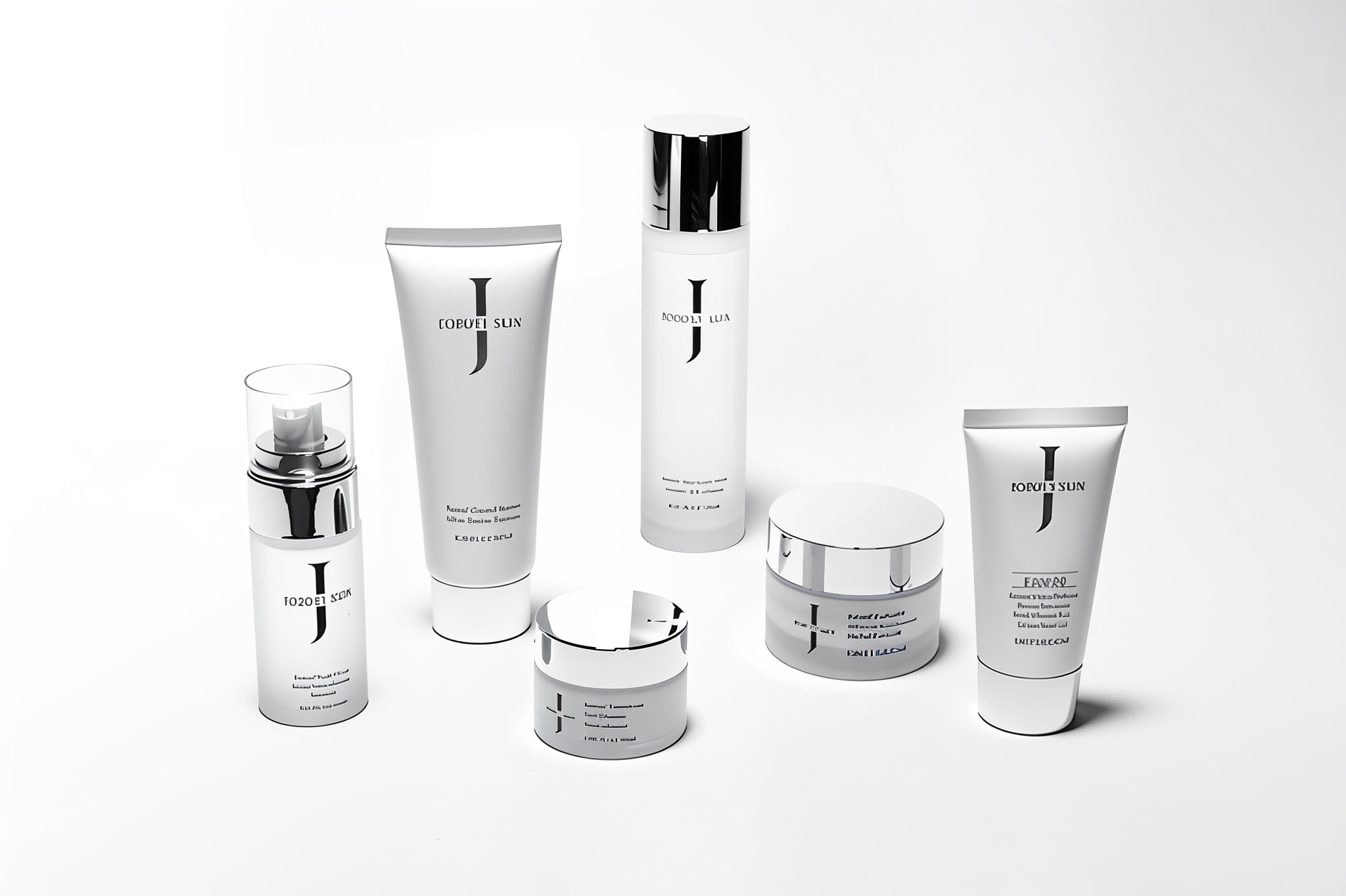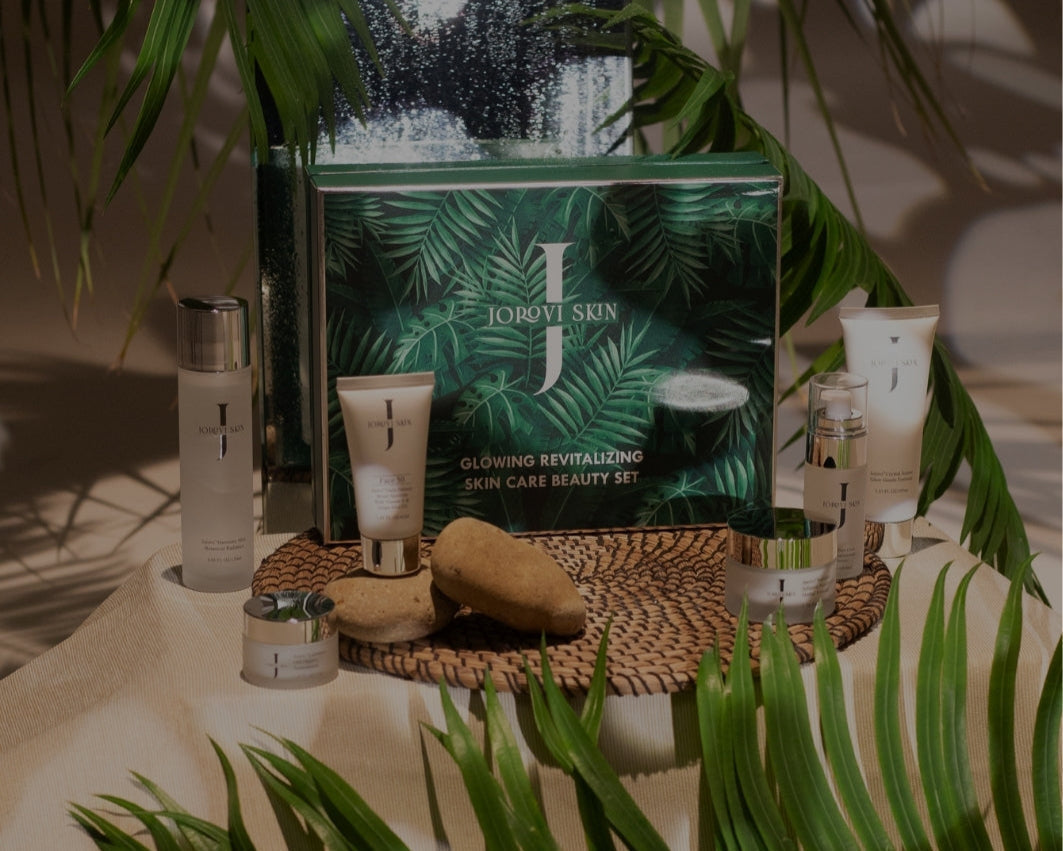
Dry Skin: Causes, Science, and Skincare with Jorovi Skin
Dry skin is one of the most common skin types, and it requires special care to maintain balance, comfort, and radiance. Unlike oily skin, which produces excess sebum, dry skin struggles with insufficient natural oils and hydration. This leads to tightness, flakiness, rough texture, and sometimes irritation.
A consistent routine with barrier-supportive products is key. The Jorovi Beauty Set is dermatologist-tested and designed to simplify skincare for those with dry or sensitive skin. Its easy-to-use formulas focus on hydration, barrier protection, and gentle care—making it a trusted option for anyone seeking balance and relief from dryness.
What Defines Dry Skin?
Dry skin occurs when the skin produces too little sebum and natural moisturizing factors (NMFs). Sebum is made up of fatty acids and lipids that lock in hydration, while NMFs like urea and amino acids pull water into the skin. Without enough of these protective elements, the barrier weakens, allowing water to escape.
Scientific note: A 2018 review in Dermatology and Therapy identified transepidermal water loss (TEWL) as a hallmark of dry skin, directly linking barrier dysfunction to dryness and sensitivity.
What Causes Dry Skin?
-
Genetics – Variations in the filaggrin gene reduce barrier strength, leading to lifelong dryness.
-
Climate – Cold air, wind, and indoor heating strip hydration.
-
Age – Sebum naturally decreases with age, making mature skin drier.
-
Hormones – Menopause reduces estrogen, which normally supports hydration.
-
Skincare habits – Harsh cleansers and hot showers worsen dryness.
-
Medical conditions – Eczema, psoriasis, diabetes, and thyroid imbalances often cause dryness.
-
Medications – Isotretinoin, diuretics, and some blood pressure meds deplete skin moisture.
Signs of Dry Skin
-
Tightness after cleansing
-
Flaky or rough patches
-
Dull, uneven tone
-
Fine lines from lack of plumpness
-
Increased reactivity to products
How to check: Touch the skin under strong light—dry skin feels coarse, and flakes are often visible.
Benefits of Dry Skin
-
Less prone to acne compared to oily skin
-
Matte, shine-free appearance
-
Makeup typically lasts longer without slipping
Best Practices for Dry Skin Care
1. Cleansing
Choose a hydrating, non-foaming cleanser.
-
Jorovi Gentle Amino-Cleanser — designed for sensitive and dry skin.
-
CeraVe Hydrating Cleanser
-
La Roche-Posay Toleriane Hydrating Gentle Cleanser
2. Exfoliation
Gentle exfoliation helps remove flakes and improve absorption.
-
The Ordinary Lactic Acid 5% + HA
-
AmLactin Daily Moisturizing Lotion
3. Moisturizing
Moisturizers should combine humectants, emollients, and occlusives.
-
Jorovi Hydrating Cream — focused on barrier repair.
-
CeraVe Moisturizing Cream
-
Eucerin Advanced Repair Cream
4. Sun Protection
Even dry skin needs daily SPF—look for hydrating formulas.
-
EltaMD UV Daily SPF 40
-
La Roche-Posay Melt-in Milk SPF 60
-
Neutrogena Hydro Boost Water Gel Lotion SPF 50
5. Treatments
-
Hyaluronic Acid: Attracts water molecules.
-
Niacinamide: Improves barrier repair.
-
Ceramides: Replace lost skin lipids.
-
Squalane: Mimics natural skin oils.
Ingredients to Avoid
-
Sulfates (SLS, SLES)
-
Alcohol-heavy toners
-
Strong fragrances or essential oils
-
Overuse of clay masks
Lifestyle Adjustments
-
Use humidifiers indoors during winter.
-
Limit hot showers—opt for lukewarm water.
-
Apply moisturizer immediately after bathing.
-
Eat omega-3–rich foods for barrier support.
-
Choose mild, fragrance-free detergents.
Myths About Dry Skin
-
“Just drink more water.” External hydration and barrier repair matter more.
-
“Moisturizers make skin lazy.” Moisturizers strengthen and protect; they don’t weaken natural function.
-
“Dry skin is only for older people.” Genetics and climate can cause dryness at any age.
FAQs
Q: Can dry skin also be sensitive?
Yes—barrier dysfunction makes dry skin more prone to irritation.
Q: Is oil enough to fix dry skin?
No. Oils alone don’t replace lost water; humectants like hyaluronic acid are required.
Q: Can dry skin become oily later?
Usually not—though hydration levels may improve with consistent care.
An Easy Derm Test Complete Routine for Dry Skin
For dry skin, simplicity is best: gentle cleansing, hydration, emollient-rich moisturizing, and daily SPF.

👉 The Jorovi Beauty Set provides a dermatologist-tested, easy-to-use routine designed to replenish hydration, strengthen the skin barrier, and calm sensitivity, making it an ideal choice for dry skin types.
Dry skin is a natural skin type characterized by insufficient oil and hydration. It can lead to tightness, dullness, and discomfort, but it’s manageable with the right approach. Barrier repair, hydration, and sun protection are the pillars of care. With consistent attention and products formulated for sensitive skin, dry skin can be kept healthy, smooth, and radiant.



